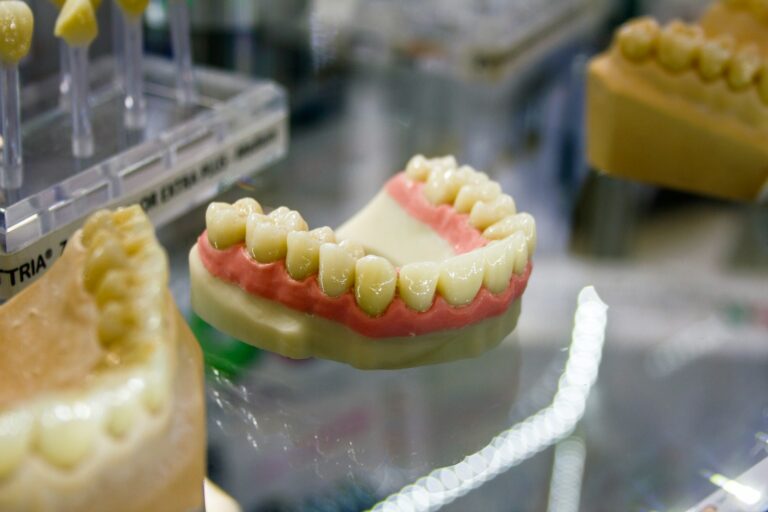
Considering liposuction can be an exciting yet somewhat daunting journey, particularly if you are uncertain about what to expect during your liposuction consultation in the UK.
This guide outlines the essential elements of a liposuction consultation in the UK. It includes important discussions about your medical history, your desired outcomes, the procedure itself, potential risks, and the recovery process.
Additionally, you will find helpful tips on how to prepare effectively, ensuring that you are ready to make informed decisions about your body. Let’s take a closer look at what lies ahead on this transformative journey.
What to Expect During Your Liposuction Consultation in the UK?

When contemplating liposuction, it is essential to understand what to expect during your consultation in the UK, as this marks a crucial first step in your body contouring journey.
The consultation is an opportunity to meet with a qualified plastic surgeon, where you will discuss your goals, medical history, and any concerns you may have about the liposuction procedure. It also provides a chance to address myths about liposuction, such as the misconception that it is a weight-loss solution rather than a body contouring technique.
During this appointment, you will have the chance to explore various liposuction techniques, such as tumescent liposuction and ultrasound-assisted liposuction. Together, you will establish a treatment plan tailored to your specific needs, ensuring that you feel comfortable and well-informed about your options moving forward.
1. Medical History and Physical Examination
During a liposuction consultation, the plastic surgeon will perform a comprehensive review of your medical history and conduct a physical examination to assess your eligibility for the procedure. This step is critical as it evaluates important factors such as your body mass index (BMI) and skin elasticity, both of which can significantly affect the success of fat removal and your overall recovery experience.
The surgeon will take into account any previous surgeries, underlying health conditions, or medications that might influence the outcome of the procedure. Understanding these elements is essential, as they play a key role in developing a personalised treatment plan.
For example, certain health factors may increase the risk of complications, making it vital for the surgeon to have a complete understanding of the patient’s medical background. By prioritising patient safety through this thorough assessment, a tailored approach can be developed to achieve the best possible results while minimising the risks associated with the surgery.
2. Discussion of Desired Results
A significant portion of the liposuction consultation will involve an open and honest discussion about your desired results and how they match with realistic expectations. Clearly communicating your goals is essential, as it helps the plastic surgeon understand your vision for body contouring and can significantly boost your self-confidence after the procedure.
Setting achievable goals is important because it allows for effective management of expectations throughout the process. Patients should keep in mind that while liposuction can shape the body, it is crucial to maintain a healthy perspective on how these changes will affect not only immediate appearance but also long-term body image.
Emotional readiness is also a key factor; it plays a vital role in how one adjusts to the results. Seeking support groups or connecting with others who have had similar experiences can provide valuable insights and reassurance, making the journey easier and fostering a sense of community during recovery.
3. Explanation of Procedure and Risks
During the consultation, the plastic surgeon will provide a comprehensive overview of the liposuction procedure. This will include various techniques, such as laser liposuction, and an outline of the associated risks and complications. Understanding these details is vital for making an informed decision and ensuring a sense of comfort with the surgical risks involved.
The discussion should also encompass other methods like tumescent liposuction and ultrasound-assisted liposuction, each of which presents its own unique benefits and challenges. For example, tumescent liposuction involves the injection of a solution designed to minimise bleeding and enhance the efficiency of fat removal, whereas ultrasound techniques employ sound waves to more effectively break down fat cells.
It is important to recognise that potential complications, such as infection, changes in sensation, and uneven contouring, can arise from any technique. This highlights the necessity of thorough patient education.
Therefore, engaging in an open dialogue with the medical professional about these factors is essential, as their guidance will significantly contribute to setting realistic expectations and ensuring that the patient is fully informed and prepared for the journey ahead.
4. Pre-Operative Instructions
Before undergoing a liposuction procedure, it is important for the plastic surgeon to provide detailed pre-operative instructions. These instructions may encompass dietary recommendations and necessary lifestyle changes aimed at enhancing recovery expectations. Following these guidelines closely can significantly improve comfort levels and contribute to more successful long-term results.
These pre-operative instructions are crucial for setting the stage for a smooth recovery process by minimising complications and optimising healing. By adhering to recommendations regarding hydration, physical activity, and nutritional intake, individuals may experience quicker recovery timelines and noticeably better outcomes.
Prioritising self-care during this period not only boosts physical wellness but also enhances emotional well-being, creating a more satisfying post-operative experience. Additionally, maintaining open communication with the medical team throughout this journey is essential, as it provides reassurance and supports the overall recovery process.
5. Cost and Financing Options
Understanding the cost of liposuction and the available financing options is a vital part of the consultation process. It is essential for the surgeon to provide a clear and transparent breakdown of consultation fees, surgical costs, and the ethical practices surrounding payment plans. This ensures that you are fully informed before making any financial commitments.
Several factors play a significant role in determining the total cost of the procedure. These include the surgeon’s experience, the accreditation of the facility, and the complexity of the procedure itself. A highly qualified surgeon often charges a higher fee, which reflects their level of expertise and successful outcomes. Similarly, accredited facilities usually maintain a higher standard of care, which can also contribute to increased costs.
Patients should explore various financing options that can help lessen the financial burden. Options such as medical credit cards or payment plans offered by practices can make the procedure more accessible.
By prioritising patient education regarding these aspects, individuals can feel enableed to make informed choices while expecting ethical practices from their healthcare providers.
6. Before and After Photos
Reviewing before and after photographs during your consultation can significantly enhance your understanding of the realistic outcomes you might expect from liposuction. These testimonials and success stories from previous patients effectively showcase the potential transformations, helping to manage expectations in a constructive manner.
By taking the time to analyse these visual representations, individuals gain a clearer understanding of both the benefits and limitations of the procedure. This visual education is a crucial resource for prospective patients, as it allows them to compare various body types and results, ultimately leading to more knowledge-based decision making.
Evaluating these images can also shed light on the nuances involved in recovery, highlighting that experiences can vary among individuals. As a result, this process enables prospective patients by aligning their goals with achievable outcomes while underscoring the importance of maintaining open communication with healthcare providers throughout their journey.
7. Questions and Concerns
Preparing a list of questions and concerns to discuss during your consultation is essential for ensuring that all aspects of the liposuction process are thoroughly addressed. This proactive approach allows you to assess the surgeon’s experience and gain insight into the expected duration of the procedure, providing you with both peace of mind and clarity.
Engaging in an open dialogue not only enables patients but also cultivates a stronger relationship between patient and surgeon. It is important to understand the potential risks involved and to clarify what a typical recovery timeline looks like.
Asking questions about post-operative care, expected results, and follow-up visits can help illuminate what to anticipate, allowing for better preparation. This level of patient engagement is crucial, as it ensures that every detail is considered, ultimately leading to informed decisions that align with individual goals and expectations.
What Is the Recovery Process Like After Liposuction?

Understanding the recovery process after liposuction is essential for a smooth return to your daily routine.
Following the procedure, patients can expect to receive comprehensive post-operative care instructions from their plastic surgeon. These instructions will cover important details such as pain management, recovery timelines, and any potential risks and complications that may arise during the healing process.
1. Post-Operative Care Instructions
Post-operative care instructions play a vital role in ensuring a successful recovery after liposuction. They provide clear guidelines on what patients can expect regarding scars, swelling, and bruising. Adhering to these instructions helps manage recovery expectations and can significantly impact the healing process.
Proper wound care is essential. Patients should keep the surgical site clean and dry, changing dressings as instructed by their healthcare provider. Additionally, activity restrictions are important; avoiding strenuous activities and heavy lifting for several weeks is crucial to minimising complications.
Wearing compression garments as directed can also assist in reducing swelling and optimising healing by supporting the new contours of the body. Understanding these aspects of post-operative care not only enhances comfort but can also lead to improved long-term outcomes.
2. Pain Management
Effective pain management is vital after liposuction, as it significantly influences your comfort during the recovery process. Patients will be informed about the anaesthesia options used during the procedure, which may include local anaesthesia and sedation, as well as the recommended methods for managing pain in the post-operative phase.
To ensure a seamless healing experience, it is essential for individuals to closely follow their surgeon’s recommendations regarding pain management strategies. This could involve taking over-the-counter medications such as paracetamol or ibuprofen, along with prescribed opioids if more severe pain arises.
Additionally, non-pharmacological methods like ice packs, adequate rest, and gentle movement can also be beneficial in alleviating discomfort. Recognising the importance of adhering to personalised advice can lead to better outcomes and a more pleasant experience, allowing patients to concentrate on their recovery and the eventual results of their procedure.
3. Follow-Up Appointments
Scheduling follow-up appointments is a vital component of the recovery timeline after liposuction. These visits enable your plastic surgeon to monitor your healing process closely and address any concerns or complications that may arise. They are essential for ensuring that your recovery remains on track and that you are satisfied with the results.
During these follow-up visits, the surgeon will evaluate the healing of your incisions, assess any swelling, and discuss the gradual changes in body contours that you can expect as the healing progresses. Patients should be prepared to answer questions about their recovery experience, including any pain levels or unusual symptoms they may be noticing.
These appointments not only facilitate the timely identification of potential complications, such as infection or fluid build-up, but also provide an opportunity to receive professional advice on post-operative care. This includes guidance on when to resume physical activities and what to avoid during recovery.
Ultimately, attending these crucial follow-up appointments plays a significant role in achieving the desired outcomes and ensuring a smoother recovery journey.
How to Prepare for Your Liposuction Consultation in the UK?

Preparing for a liposuction consultation in the UK involves several important steps to ensure that you make the most of your time with a qualified surgeon. This preparation includes researching potential plastic surgeons, gathering relevant medical information, and formulating a list of questions to ask.
By taking these steps, you can navigate the consultation process with confidence and clarity.
1. Research and Choose a Qualified Surgeon
Researching and selecting a qualified surgeon is one of the most important steps in preparing for your liposuction consultation. It is advisable to seek out board-certified plastic surgeons who possess extensive experience in body contouring procedures, as their qualifications can greatly influence patient safety and overall satisfaction with the results.
To ensure you are making a well-informed decision, it is essential to verify the surgeon’s credentials through relevant medical boards and associations. This can provide valuable insights into their training and specialization.
Additionally, taking the time to read patient reviews can offer prospective patients a glimpse into the experiences of others, showcasing not only the outcomes but also the surgeon’s approach to patient care.
Furthermore, confirming that the facility where the procedure will take place is accredited adds an extra layer of assurance regarding ethical practices and compliance with safety standards. This ultimately helps safeguard the well-being of those seeking body enhancement.
2. Gather Relevant Medical Information
Gathering relevant medical information is crucial for ensuring a smooth consultation process. This information allows your plastic surgeon to accurately assess your health considerations. By providing a comprehensive medical history that includes past surgeries and current medications, you enable the surgeon to tailor a treatment plan specifically to your unique needs, ultimately enhancing your comfort as a patient.
It is also important to share lifestyle factors, such as smoking habits, alcohol consumption, and exercise routines, as these can significantly influence recovery and surgical outcomes. Being transparent about any pre-existing conditions or concerns is essential, as it allows the surgeon to prioritise your safety and minimise potential risks.
Recognising that each individual’s lifestyle can impact the effectiveness of the procedure is vital. A candid dialogue during the consultation can lead to the best possible results, customised to your specific health needs. By being open about your personal habits and health, you can play a significant role in fostering a successful surgical experience.
3. Prepare a List of Questions
Preparing a list of questions in advance can greatly enhance your consultation experience and ensure that all of your concerns are adequately addressed. It is helpful to consider inquiries about the surgeon’s experience, the duration of the procedure, post-operative care, and any risks associated with liposuction. This preparation will allow you to maximise your time during the consultation.
It is also vital to reflect on how the procedure aligns with your personal health goals and to consider the type of support you may need during recovery. Engaging in a dialogue about potential outcomes and the importance of setting realistic expectations can provide you with clarity and reassurance.
Moreover, understanding that effective patient engagement is crucial to the overall success of the surgery cannot be overstated.
Well-informed patients are better equipped to make decisions that resonate with their values and lifestyles. This proactive approach not only enables individuals but also fosters a collaborative relationship with healthcare providers.
4. Consider Your Goals and Expectations
As you prepare for your liposuction consultation, it is essential to take a moment to reflect on your goals and expectations regarding the procedure. Understanding what you hope to achieve will not only guide your discussion with the surgeon but also play a significant role in your emotional readiness and self-confidence moving forward.
Reflecting on personal goals is crucial. It can be helpful to visualise realistic outcomes and consider how these changes align with your current perceptions of your body image.
It is important to acknowledge that cosmetic surgery is not a quick fix; it is a step towards enhancing self-esteem. Engaging in honest self-reflection about your motivations for seeking the procedure is essential.
Consider the potential impact of achieving your desired results on your psychological well-being and how your perspective on body image might evolve. This thoughtful approach will foster a healthier relationship with your body, regardless of the surgical outcomes.
Frequently Asked Questions
What can I expect during my liposuction consultation in the UK?
During your liposuction consultation in the UK, you can expect to meet with a plastic surgeon to discuss your goals and expectations, undergo a physical examination, and receive personalised recommendations and information about the procedure and recovery process.
How long does a liposuction consultation typically last?
The length of a liposuction consultation in the UK can vary depending on the complexity of your case and the number of questions you have. On average, consultations can last anywhere from 30 minutes to an hour. It is important to take your time and make sure all of your questions and concerns are addressed.
What should I bring to my liposuction consultation?
It is recommended to bring a list of questions and concerns, any medical records or imaging results related to the area you want to have liposuction on, and a list of any current medications or supplements you are taking. It is also helpful to bring a trusted friend or family member for support and to take notes during the consultation.
Will I be able to see the results of my liposuction during the consultation?
No, you will not be able to see the immediate results of your liposuction during the consultation. However, the plastic surgeon may use computer imaging or before and after photos of previous patients to give you an idea of what the potential results may look like.
Is there a cost for a liposuction consultation in the UK?
Yes, there is typically a consultation fee for liposuction in the UK. However, this fee may be applied towards the overall cost of the procedure if you decide to move forward with surgery.
What if I am not a suitable candidate for liposuction during my consultation?
If the plastic surgeon determines that you are not a suitable candidate for liposuction during your consultation, they may recommend alternative procedures or lifestyle changes to help you achieve your desired results. It is important to have realistic expectations and to follow the recommendations of the surgeon to ensure your safety and satisfaction with the outcome.






